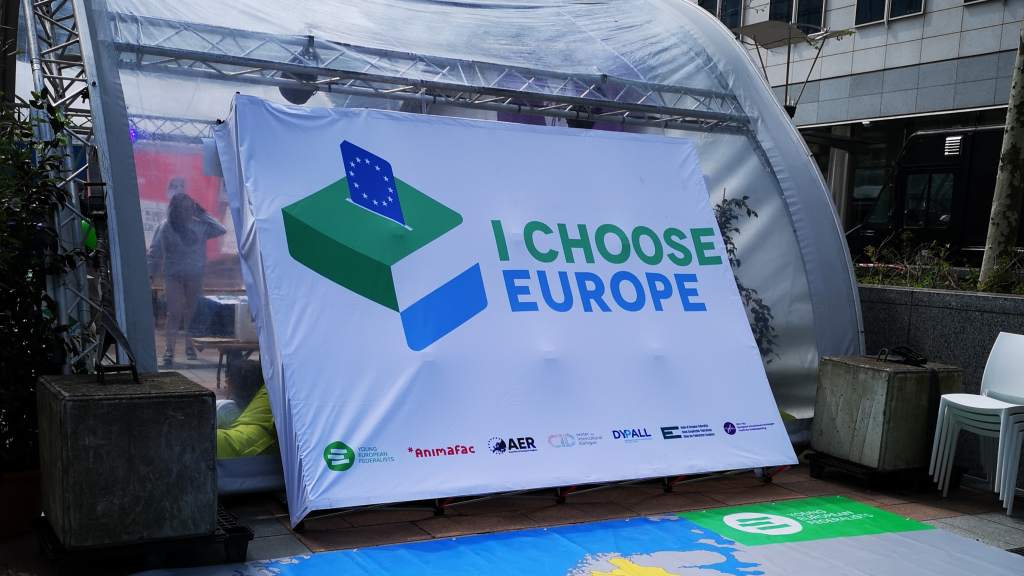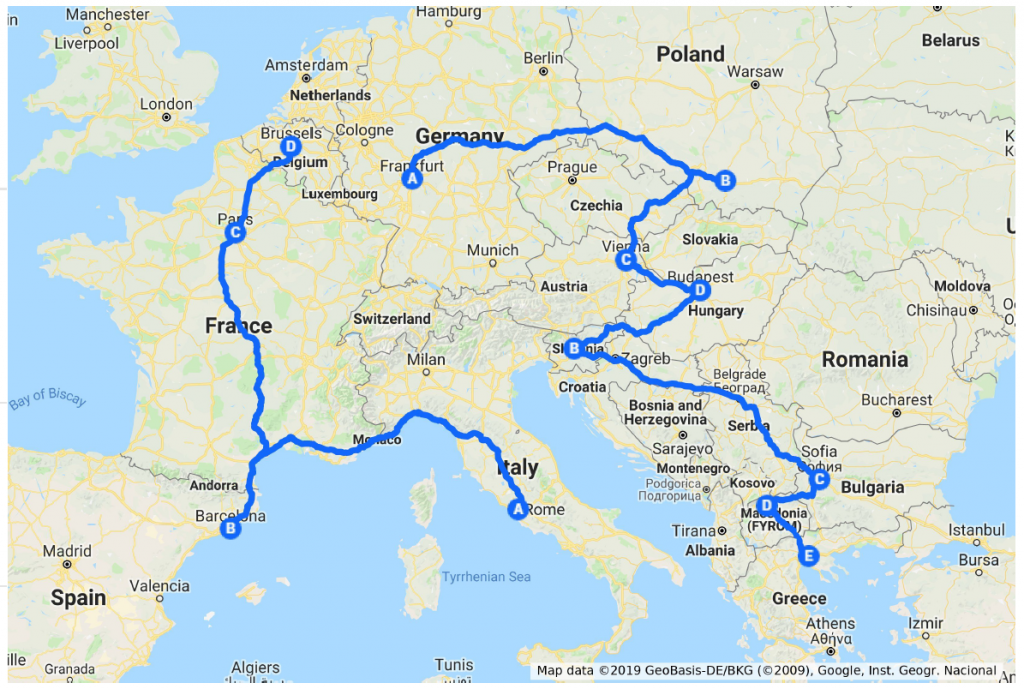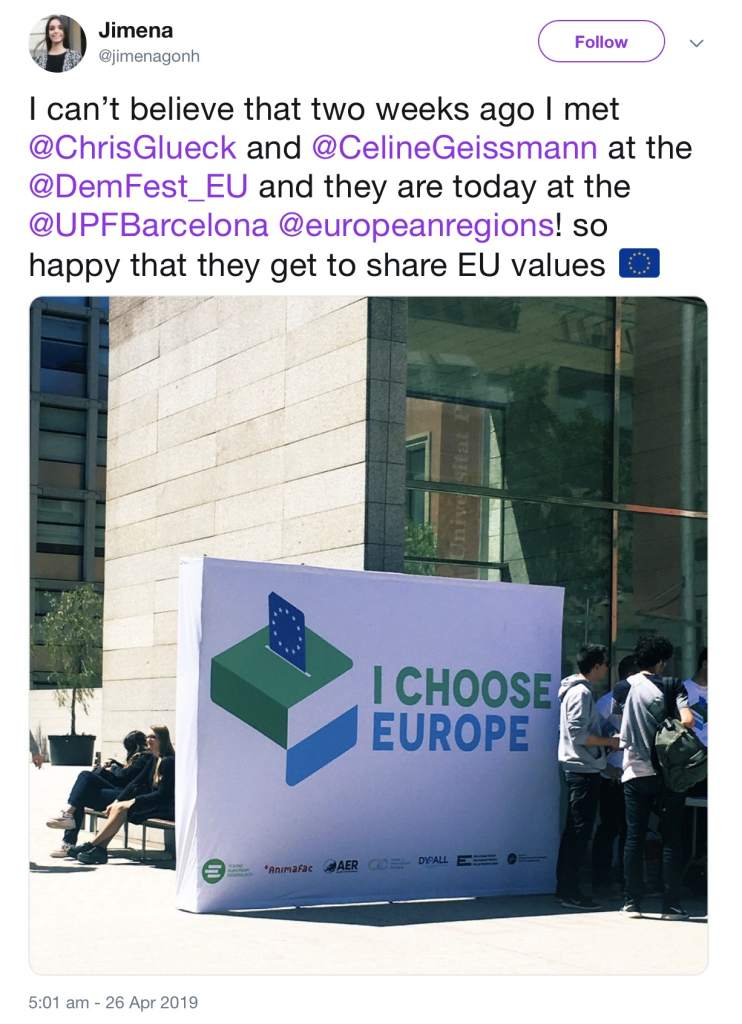 Share this!
Share this!
The #IChooseEurope campaign aims to encourage all Europeans to take part in the elections held on May 24-27 across the continent. To reach out, a series of debates and public events were organised by young activists to raise awareness about the European Elections.
One of the key messages, campaigning for a more united Europe, was literally implemented with a dedicated bus which visited 12 cities. At each stop, the #IChooseEurope volunteers organised a public event where locals, politicians and gathered to speak about their visions for Europe.
The campaign particularly involved young people as a growing social and political force, especially in the current debate on the future of Europe. The young activists and the widely-engaged public were thus starkly contrasting pessimistic observations about increasing disengagement voiced by decision-makers and the media.
The bus toured across Europe during the month of April:
The first trip started in Frankfurt am Main (DE), with stops in Krakau (PL), Vienna (AT) and Budapest (HU).
The second part included stops in Ljubljana (SL), Sofia (BG), Thessaloniki (GR) and Skopje, Macedonia (FYROM).
The final trip started in Rome (IT), passed Barcelona (ES), Paris and Lille (FR), before its final stop in Brussels (BE).

AER is pleased to contribute to the pan-European project as a partner: We strongly support the spirit to encourage citizens across Europe in engaging with matters they care about. Furthermore, being a voice for regions, the #IChooseEurope bus tour suitably united local actors and political activists. In stimulating creativity and encouraging political debate, the project is exemplary for opening up a bottom-up, pan-European discourse.
Besides the main organiser, the Young European Federalists [JEF], other partner organisations included Animafac, Balkans Beyond Borders, Center for Intercultural Dialogue, DYPALL Network, Europe4Youth, European Educational Exchanges – Youth for Understanding, and the Union of European Federalists.
Together, the civil society organisations aim – in the run-up to the European Parliament elections – to strengthen public participation before and after the elections. Thereby, #IChooseEurope sent a strong message to decision-makers and the public that the European youth is not just a passive audience, but a growing social and political force.
One #IChooseEurope participant, Jimena, tweeted:

Young people were furthermore participating in the tour because they claim to be particularly affected by the outcome of the results and the composition of the next European Parliament. Next to raising awareness about voting, the public events stimulated people to reflect about what kind of Europe they would like to vote for.
On April 30th, 2019, to coincidence with the European Youth Week, the #IChooseEurope bus tour finally arrived in the “Capital of Europe”, in Brussels. Many JEF members as well as interested citizens attended the closing event.
Belgian candidates for the European Parliament were on the panel: Maxim Vandekerckhove (sp.a/ S&D), Saskia Bricmont (ECOLO/ European Greens), Christophe Calis (Volt), Laura Hidalgo (MR/ ALDE) and Jan der Volder (CD&V). After a brief introduction on the elections in Belgium, the audience was excited to ask the political representatives: What would they have to say about the future or Europe?
The discussion touched on many issues around inequalities, a more sustainable Europe, inclusive and fair education – all of pertinence to young people. The candidates agreed to the importance of local political actors and initiatives to strengthen active citizenship. European decision-makers should not only implement policies but also get in touch more frequently with their constituents. “The roots lie in local democracy, it is only in your area where you can understand the way Europe really works.”
It is therefor crucial that young people turn out to vote on 23-26 May 2019. Through the project “European Youth Together: Road to the Future” and the #IChooseEurope campaign, AER hopes to boost citizen participation in the upcoming elections and ensure in particular that young people’s voices are heard.
